- Home
- Rick Mofina
Blood of Others Page 3
Blood of Others Read online
Page 3
“Hi, Dad.”
“Hi, pal.” The patches had vanished. He looked great.
“Mr. Reed. I’m Ellen Crenshaw.” A woman in her mid-thirties, frizzy red hair, beige V-neck top and tan slacks. She was holding a file folder. “Zach’s fine now, but I suspect --”
Reed’s cell phone rang. In a reflex he took the call.
“This is Brader. Where are you?”
Reed’s stomach tightened. “On my day off.”
“Not by my schedule. You’re on today and you’re late!”
“No, I am not on.”
“I want you to get your damn ass to Union Square. The Forever & Ever bridal shop. Photo’s already got somebody there.”
“I am off today, Clyde.”
The doctor’s mouth opened. “Mr. Reed, please.”
Reed’s head was shattering. His stomach roiling. He held up his hand, a plea for patience. Zach looked at his shoes.
“You are on duty today, Reed.”
“My boy is sick! I am at the doctor’s office and it’s my day off!”
Crenshaw shut the door. Zach swayed on his feet.
“You damn well listen to me, Reed. Get yourself down there now, or get a new job. Forever & Ever. A homicide. Got it?”
Homicide?
Reed hung up. “I’m sorry, Dr. Crenshaw.”
She began reading from the file.
Reed’s phone rang again.
“Mr. Reed, please shut your phone off!”
He’d already taken the call.
“It’s me,” his wife said. “I tried you at home, where are you?”
“Hi. We had to go out on an errand, pick up something.”
Crenshaw looked at her watch.
“Ann, my battery’s going we could get cut off --”
“Put Zach on.”
“Sure.”
He passed the phone.
“It’s Mom.”
“Hi, Mom. I’m good. What did we have to go out for?”
Reed carefully mouthed the word milk. Crenshaw stared at him like he were insane.
“Milk. For my cereal. Guess the milk we had turned sour. Oh. The phone’s beeping, Mom. Here’s Dad. I love you!”
Reed took the phone. He was getting another call. “Ann? Yeah, it’s the battery or something. When are you coming back?”
“Could be tonight. Tomorrow at the latest. We had plenty of fresh milk, Tom. Bye.”
Reed took the incoming call.
“Hey Reed. It’s Kayle. I’m down at this bride shop murder. When do you plan to get here?”
“Soon Kayle, I --”
The cell phone was pulled from Reed’s hand as Crenshaw took it hostage in hers, closed it to write on a pad.
“Zachary’s had a reaction to something. It could be an allergy due to diet or environment. I want him to see a specialist. Here’s my referral to set up an appointment. Have Ann call me. You guys can go.”
Crenshaw tore her written page from her pad, thrust it in Reed’s hand with his phone, then vanished.
Reed looked at the note, then at Zach, as he folded the page and tucked it into his breast pocket.
“How do you feel now, son?”
“Fine, Dad.”
“I was thinking we could make today a sort of job-shadow day. How’s that sound?”
“Cool.”
They picked up breakfast at a McDonalds drive-thru, ate on the ride to Union Square as Reed navigated the quickest route from the Sunset.
Zach’s eyes widened at the scene downtown, a tangle of police cars, news crews, and lights. Reed flashed his press ID to a cop who nodded approval for him to park near his squad car.
“You stay with me. You do what I say. If you feel sick, let me know.”
Zach nodded. Excited.
“Dad, is that Sky Parker from KTO?”
“Yes.” Reed sipped coffee as they walked to the news trucks near Forever & Ever, where a pack had gathered. Cameras and groggy-looking press types sipping take-out coffee bordered the yellow crime-scene tape, joking quietly with officers, teasing them about lifting the tarp blocking the shop’s display window.
“Five seconds. We won’t tell. Please.”
A blond-haired woman in her mid-twenties wearing a navy suit and impeccable make-up approached Reed.
“Tom. It’s been a long time,” Sky Parker had a honey-dripping broadcaster’s voice and huge violet eyes. “Who’s your little friend?”
“Zach, my son.”
Parker’s brow knitted with concern. “Tom, I don’t think this is --”
“Long story, Sky. Long, painful story. What’s up here?”
Parker dropped her voice, practically whispering in Reed’s ear.
“What we’ve got is an old couple stop to admire the brides on display this morning, noticing that one is covered in blood. Dead bride in the window.” Parker smelled like fresh flowers.
“Anyone talk to the couple?”
“Nope. Too shook-up.”
“Staff?”
Parker shook her head and sipped coffee, leaving a lipstick imprint on the lid.
“Suspects?”
“Nothing. What we hear is they haven’t touched the bride yet. This is a fresh story, guy. Early in the day, good for my deadline. My desk will feed on this every fifteen minutes. Hey, Zach.”
“Hi.”
“No school today?”
“No.”
“Bet your Mom doesn’t know you’re down here with Dad?” Her pretty eyebrows bounced.
Zach shook his head.
“Who’s here from homicide, Sky?”
“Haven’t seen anyone yet.” Parker’s cell phone rang.
“Hey, Reed!” Levi Kayle, a tanned Star news photographer with a goatee, spotted him, then Zach. “Reed, what’s with your partner? We got child labor laws in this state.”
“Funny.”
Kayle showed Reed his digital photos on his Nikon. A detective peeking behind the tarp. Stark. “Not great, but it will work,” Kayle said. “Are you the only writer on this?”
“Don’t know. Nobody’s told me anything,” Reed said, feeling his shirt being tugged.
“Dad, I gotta go to the bathroom.”
“Not now, Zach.”
“Dad. I have to.”
“Tom, there’s a coffee shop around the corner,” Kayle said.
Inside the shop while Reed waited for his son near the washroom he spotted an elderly couple sitting alone. The woman was distraught, the man was comforting her. A waitress brought a glass of water.
“This might help,” the waitress said.
“What happened over there?” Reed asked.
“A dizzy spell. Something to do with that commotion at the boutique. Must be a big deal, there’s a cop in our office on the phone.”
Reed approached the elderly couple.
“Everything all right, sir?”
“No, everything’s not all right,” the man said. “It was horrible.”
Reed approached their table.
“Sir, can you tell me what happened?”
“We already told you. Are you another police officer?”
“No. I’m not.” Reed glanced over his shoulder, then at the woman, staring into her water glass. “I’m with the Star, I --”
Gazing at the window, the man said: “Every morning we walk by that shop. My wife likes to look at the dresses. We couldn’t believe it. At first we thought it was a terrible joke. A sick prank. A movie set maybe. I’ve never seen so much blood in my life. Everywhere. The way she was posed, the way it cascaded, from her face, her chest. Such horror.”
Water spilled from the woman’s trembling cup after she sipped from it.
“I’ll never walk by the shop again,” she said. “Never. As long as I live.”
Reed finished scribbling his notes thinking these were powerful quotes, raising his head to see his son standing next to him staring at the couple.
FIVE
Walt Sydowski watched his girlfriend Lou
ise kissing another man on an empty beach and swelled with pride.
“Because you don’t know what tomorrow will bring.”
Ain’t that the truth, Sydowski agreed, watching the TV commercial for estate planning end with Louise and her “husband” strolling hand-in-hand into a setting sun. She looked so good up there on the set over the counter of Nick’s. The busy diner smelled of frying bacon. It made the best Denvers and BLTs in town and was a short walk from the Hall of Justice.
Sydowski sipped the last of his coffee waiting for Louise to return from the rest room. He felt the flare of heartburn, popped a Tums knowing he’d pay the price for not holding the onions from his omelet. Or was he reacting to what Louise had dropped on him while eating her muffin? They met here for breakfast before his shift and her early appointment downtown with advertising people.
Louise was a vibrant sixty-two-year-old grandmother and part-time actor who could pass for forty. They had been dating for close to a year now since meeting at the Seattle bird show. What she saw in a widowed old battleship like him was a great mystery. Sydowski nodded to the TV when she returned to their booth.
“Saw you with that other guy again.”
“Oh, he’s not as cute as you, Walter.” Her green eyes taking in his wavy white hair, tanned complexion, the rugged smile which glinted because of his two gold crowns.
Being with Louise felt so good. At the same time he felt guilty. It was more than six years since his wife Basha had died. Over three since Louise lost her husband, the judge. Living alone in her big place in San Jose. Her daughter was in Sacramento, her son in Pittsburgh. Sydowski’s two girls lived in the East.
“So, Walt, what do you think of my idea?”
“About you moving in with me?”
“Our lives are here. We’re right for each other.”
“I am trying to get my old man to move in with me.”
“John loves it at the villas in Pacifica and he doesn’t want to leave. What is it really, Walt?”
He didn’t know. Maybe he was afraid of a life change, of betraying Basha’s memory. Was he nuts?
“Cripes is that Reggie? Reggie Pope?”
Louise followed his attention to the street and a man rummaging through a trash can.
“We were partners once. Give me a minute.”
Sydowski hurried outside.
It was Reggie Pope. Unshaven, reeking of booze, hair matted, clothes dirty, tattered, probing a trash can with a stick.
“Reggie? It’s Walt.”
How many years had it been since Sydowski last saw him? Since Reggie had been shot? Reggie had been in Narcotics, pursuing a dealer in a crack house when he fell through a broken step, dropped his weapon, trapped. Reggie’s partner, Ben somebody, had frozen, allowing the dealer to shoot Reggie in the spine. The last Sydowski heard, the partner had been reassigned to some computer-desk job somewhere and was pretending to still be a cop. But Reggie had faded away. Seeing him like this now, Sydowski was at a loss. The stick came out of the trash. It was a cane. Leaning on it, Reggie seemed to take a long time turning to face Sydowski. Eyes avoiding his.
“Christ, Reggie, what happened?”
“Hello, Walt.” Reggie said. “It hasn’t been good. Not good. I took a bad turn. The POA tried to help but I got addicted to the pain pills. Took it all out on Fran. She left me. Gets most of the pension. That’s how it is.”
“Reg, we didn’t know. Man, I’m sorry.”
“I got a room in the Loin. It’s clean. I get by.”
“Want to come in for some breakfast? Coffee? On me. Come on, we’ll talk and --”
Reggie noticed Louise. “You got better things to do. I have to go. Walt, you promise me you won’t tell the guys.”
“Reg, they’ll want to know.”
“You promise me, Walt. You do that.”
“If you take this.” Sydowski gave him four twenties from his wallet.
Reggie took them and limped down the street with Sydowski standing there watching him disappear.
“You going to be okay, Walt?” Louise said.
“Yeah. I forgot to pay our check.”
“I took care of it. Just when you left, the waitress said your lieutenant is trying to reach you.”
“Leo? But I got my new cell phone --”
An older unmarked Caprice Classic screeched to a halt, double-parked in front of Nick’s. Dash cherry revolving.
Inspector Linda Turgeon got out. Ponytail bouncing, the jacket of her powder-blue pantsuit flapping, revealing her shoulder holstered gun as she rushed to Sydowski.
“Got him, Leo,” Turgeon said into the phone pressed to her ear while reaching into Sydowski’s shirt pocket for his bifocals, snapping them open, slipping them on his head. “Leo. I have showed him how to use his new one.” Turgeon reached into Sydowski’s jacket pocket, fished out his slim cell phone. “We’re on our way, Leo.” She snapped her phone shut, held Sydowski’s before his face, tapping her glossed fingernail on a small green button.
“This is the on button Walt. Press it when you’re on duty.”
Sydowski studied his new phone through his glasses. “Thought I had it on.”
“Get in. We caught one at Union Square.”
“Call me later.” Louise raised her voice.
The car doors slammed and its tires squealed. Sydowski returned Louise’s wave as the Chevy disappeared in traffic.
“Your honey back there is a fine-looking woman.” Turgeon took Seventh, grabbed the car’s radio mike to tell the district units they were coming. “Too good for you.” She sipped coffee from her take-out cup, glancing at Sydowski. “What’s with you?”
Sydowski folded his glasses into his shirt pocket as they moved down Market, buildings, city blocks rolling by. He reflected. Over twenty years in the detail. What was he at now, four hundred homicides? The highest clearance rate in the state. “You can retire any time, Walt,” his Lieutenant Leo Gonzales would remind him, unlit cigar clamped in his teeth. “Take care of your old man, your birds. Go fishing in British Columbia. Beautiful up there. You don’t need this job any more, Walt.”
But he did. Being a homicide detective was how he defined himself. He thought of Louise. His old man, his girls. Reggie Pope popping up like a ghost. Sydowski rubbed his face. “It’s a long story, Linda. What do we have at the Square?”
“Body in a wedding gown, displayed in a bridal boutique.”
“A wedding gown.” Sydowski crunched on another Tums. “This day just keeps getting better.”
At the shop Sydowski and Turgeon pulled on white surgical gloves, slipped on shoe covers, and began a case log in their notebooks. The patrol officer briefed them while raising the yellow police tape protecting the scene.
“Who made the find?” Sydowski said.
“Retired jeweler and his wife on an early morning walk. We got them waiting at a coffee shop.”
“After you, Walt.” Linda indicated the door. “You’re the primary.”
For a moment after they had entered, Sydowski and Turgeon stood in respectful silence, taking inventory of the shop, the floors, walls, merchandise. The horror in the display window. Sydowski grunted, stepping up and into the display, careful to keep clear of the blood pool, notebook poised as he positioned himself in front of the body to study it.
Barefoot in blood. Blood browned on the front of the elegant wedding dress. Hands clasping flowers, bouquet of white sweetheart roses. Female, white, late twenties, early thirties. What had she been doing in the hours before her death? Average build. He estimated her at five-four, one hundred twenty. Body secured at the shoulders with belt-like strips of white fabric to the rods of two heavy steel bases. Front upper abdomen saturated in blood. Reddish brown. Damp, dripping in spots. Dried in others. Dozens of incisions pierced the gown in the heart area. Stabbing? Frenzied attack?
Sydowski swallowed.
Her head was bowed. Tiara atop her dark brown hair. He lifted the veil to a pulpy mask of bloodied tissue, white te
eth bared in a macabre grin, terrified eyes, frozen open. Wide. Locking on to his.
He looked into them.
A wedding gown. Brown eyes. His daughters had brown eyes. Dancing with them at their weddings. With his wife. Dancing with his girls. Their glorious white gowns. Their smiles. Brown eyes glistening. Laughter. Love. Blood. The odor wasn’t too bad. She couldn’t have been dead long. Did she know death was upon her? Did she feel it? Did she scream? What was her final thought?
“Walt.” Turgeon stood beside him.
Sydowski could not take his eyes from the victim’s, as if searching them for help, a clue, anything.
“Walt?”
“Her face is gone, Linda. Peeled from her skull.”
SIX
By midafternoon Sydowski and Turgeon were still at Forever & Ever. During that time, techs from Crime Scene and Photo arrived. Voices subdued, they searched, collected, and retrieved evidence while recording the event. Apart from the din from the street and the ringing of the store’s phone, which went unanswered, they worked in near silence.
Silver graphite fingerprint powder was everywhere, patched on doors, windows, change rooms, the coffee room, sink, washroom, toilet, walls, telephone, cash register, computer, office equipment, light switches as if muddied school children rampaged through the shop.
Then the forensic pathologist from the medical examiner’s office arrived -- Julius Seaver, a tall thin man with red hair cropped short to his skull. Dressed in a dark suit, city star and name tag fastened to his breast. Seaver never smiled but had a reputation for exceptional on-scene work. Sydowski briefed him and he went to work. Seaver was relieved someone had the foresight to cover the scene from public view. At the outset of his preliminary investigation, Seaver advised Sydowski that they should look for a knife, scissors, scalpel, or bladed instrument as the weapon.
But nothing of significance had been found, except the lone shoe. It belonged to no one associated with the store. It was a left, a woman’s casual polyester oxford. Cotton lining, rubber-sole. Size six. Consistent with the victim. It showed little wear. Unlaced. It was located outside the third change room, its position measured, photographed, videotaped. Bagged. The lab would scour it for trace. The thinking was it belonged to the victim.

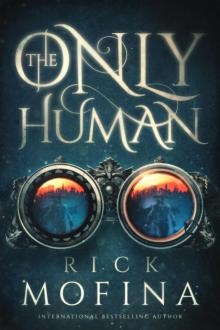 The Only Human
The Only Human Tom Reed Thriller Series
Tom Reed Thriller Series![[Tom Reed and Walt Sydowski 04.0] No Way Back Read online](http://i1.bookreadfree.com/05/tom_reed_and_walt_sydowski_04_0_no_way_back_preview.jpg) [Tom Reed and Walt Sydowski 04.0] No Way Back
[Tom Reed and Walt Sydowski 04.0] No Way Back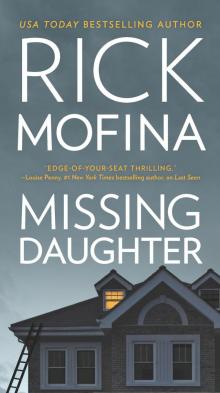 Missing Daughter
Missing Daughter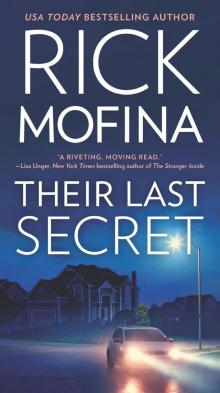 Their Last Secret
Their Last Secret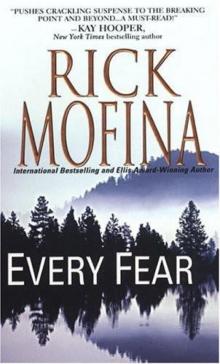 Jason Wade - 02 - Every Fear
Jason Wade - 02 - Every Fear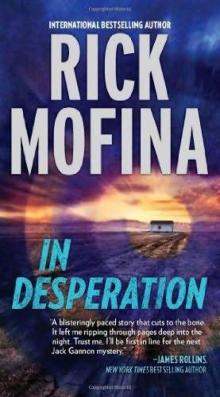 In Desperation
In Desperation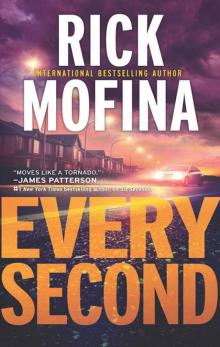 Every Second
Every Second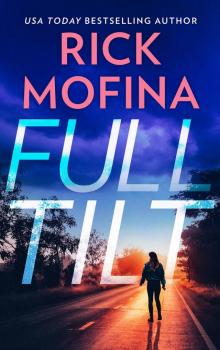 Full Tilt
Full Tilt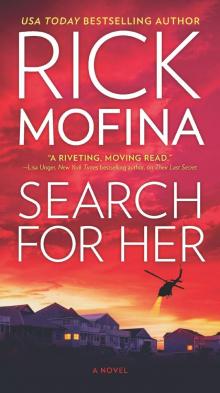 Search for Her
Search for Her The Last Pursuit
The Last Pursuit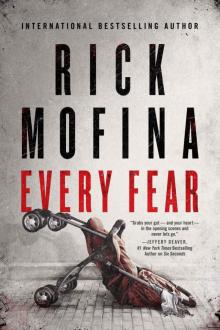 Every Fear
Every Fear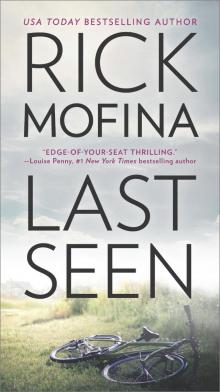 Last Seen
Last Seen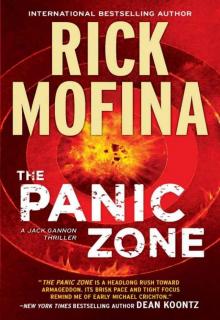 The Panic Zone
The Panic Zone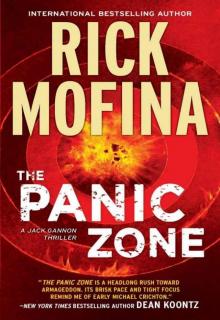 The Panic Zone jg-2
The Panic Zone jg-2 Free Fall
Free Fall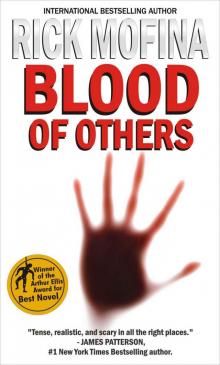 Blood of Others
Blood of Others![[Jason Wade 02.0] Every Fear Read online](http://i1.bookreadfree.com/i1/03/31/jason_wade_02_0_every_fear_preview.jpg) [Jason Wade 02.0] Every Fear
[Jason Wade 02.0] Every Fear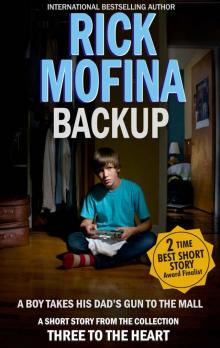 Backup
Backup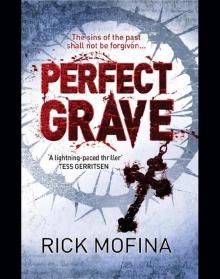 Perfect Grave
Perfect Grave Into the Dark
Into the Dark Whirlwind
Whirlwind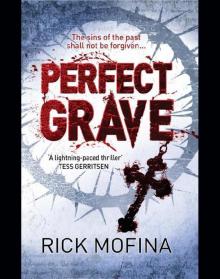 Perfect Grave jw-3
Perfect Grave jw-3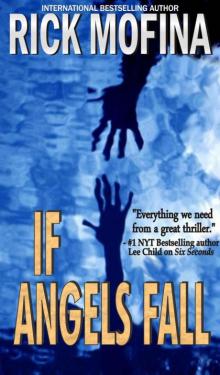 If Angels Fall (tom reed and walt sydowski)
If Angels Fall (tom reed and walt sydowski)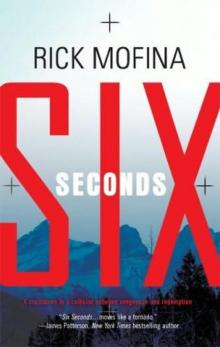 Six Seconds
Six Seconds If Angels Fall
If Angels Fall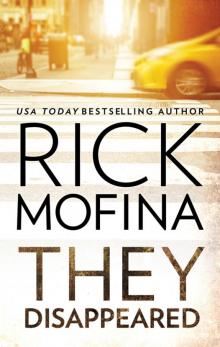 They Disappeared
They Disappeared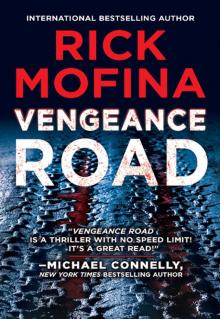 Vengeance Road
Vengeance Road Before Sunrise
Before Sunrise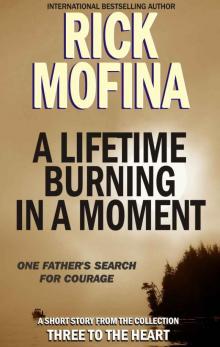 A Lifetime Burning in a Moment
A Lifetime Burning in a Moment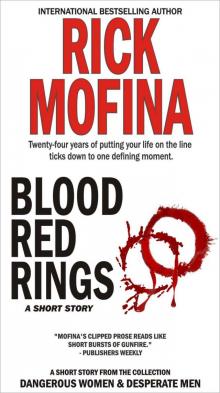 Blood Red Rings (Dangerous Women & Desperate Men)
Blood Red Rings (Dangerous Women & Desperate Men)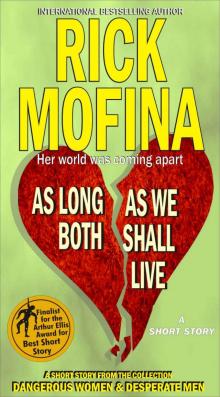 As Long As We Both Shall Live (Dangerous Women & Desperate Men)
As Long As We Both Shall Live (Dangerous Women & Desperate Men)![[Tom Reed and Walt Sydowski 01.0] If Angels Fall Read online](http://i1.bookreadfree.com/i2/04/12/tom_reed_and_walt_sydowski_01_0_if_angels_fall_preview.jpg) [Tom Reed and Walt Sydowski 01.0] If Angels Fall
[Tom Reed and Walt Sydowski 01.0] If Angels Fall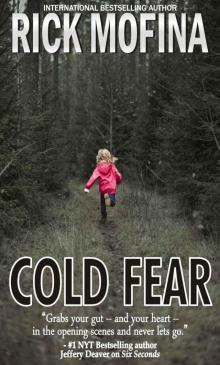 Cold Fear
Cold Fear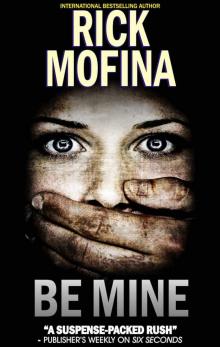 Be Mine
Be Mine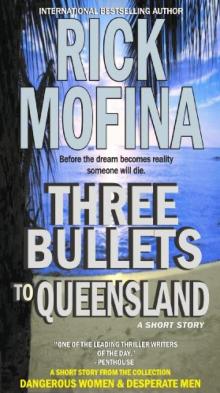 Three Bullets To Queensland
Three Bullets To Queensland